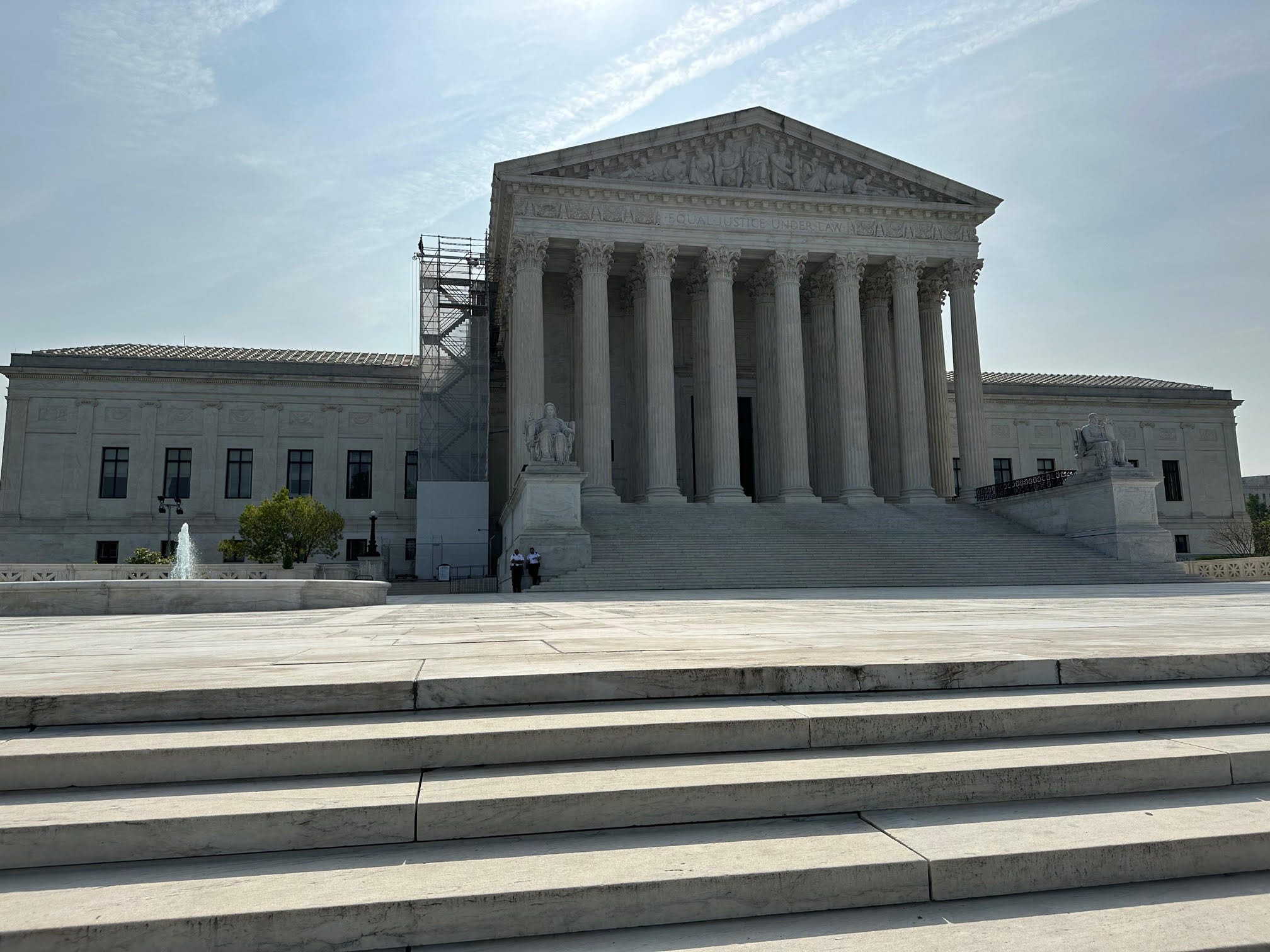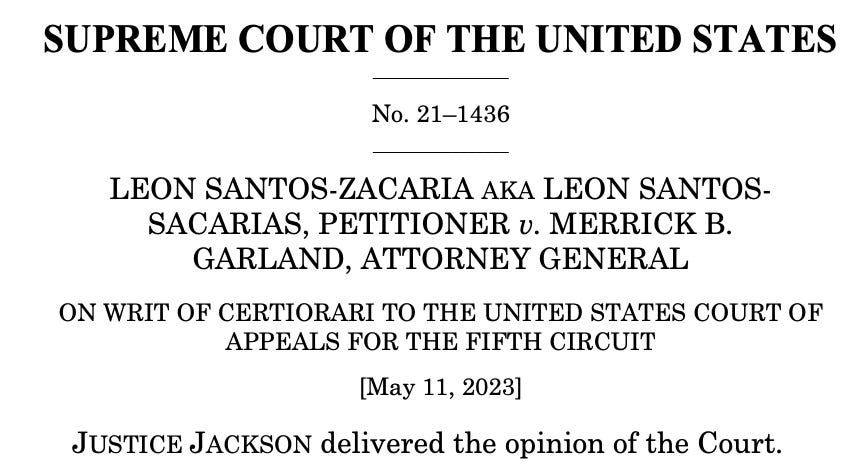From SCOTUS to Florida, two different lessons about humanity and immigration law
Justice Jackson put humanity at the fore in Santos-Zacaria v. Garland. Judge Wetherell did not in a case brought by Florida over what follows Title 42.
In a few brief paragraphs on Thursday, Justice Ketanji Brown Jackson made clear in her opinion for the U.S. Supreme Court in Santos-Zacaria v. Garland that she believes language matters to the law and the way we discuss it. Not just the language of statutes and the Constitution, where it plainly matters (or, at least, should). But also in the use of language to send broader messages — of humanity and clarity.
Estrella Santos-Zacaria, a transgender woman, won the technical legal issues on appeal at the Supreme Court on Thursday. The court was deciding whether a person has to exhaust discretionary administrative review steps before going to court and whether the provision requiring that exhaustion is jurisdictional (if so, the courts couldn’t even hear her case). She won on both questions. As a result, Santos-Zacaria, who fears returning to Guatamala, has been given the opportunity to go to court with her challenge to the decision ordering her removal.
In addition to the specifics of Santos-Zacaria’s case, though, this post is about what else Jackson did on Thursday.
First, Jackson made use of the word “noncitizen” — and not “alien” — throughout the opinion, dropping a footnote to explain her action. The footnote, it should be added, references a similar linguistic decision by Justice Brett Kavanaugh in his opinion for the court in a 2020 case.
Second, while acknowledging Santos-Zacaria’s legal name as it appears on the docket, she immediately identified Estrella Santos-Zacaria’s used name, noted that she is transgender, and used her preferred pronouns throughout the opinion.
Finally, and on a slightly different note, Jackson highlighted how immigration judges are individuals working “within the Department of Justice” — to distinguish them from Article III judges.
Later, when referencing the Board of Immigration Appeals (BIA), Jackson reiterates this point, noting that such a move is “[o]n appeal within the Department [of Justice].”
This matters because, for many people, that clarity about immigration judges’ role and placement within the legal system is exceptionally unclear. (I, personally, am doubtful whether any executive branch official should ever be allowed to have the title of judge. It’s confusing for an ordinary citizen — and in an intentional way!)
As to immigration judges, given the important role that they play and that the BIA plays, more clarity is always helpful. (In particular, by being situated within DOJ, the attorney general can review and overturn BIA decisions, as happened often in the Trump administration.)
If, even in a slight way on Thursday, Justice Jackson helped that clarity along, I’m all for it.
Notably, none of the justices dissented to Jackson’s opinion — and the Chief Justice, two Obama appointees, and three Trump appointees all joined the opinion in full.
Then, there are other judges.
As I was writing this, U.S. District Judge T. Kent Wetherell II — a Trump appointee in Florida — issued a temporary restraining order halting the Biden administration from implementing is preferred policy approach to addressing the border at the end of the Title 42 order — temporary restrictions put into place during the pandemic, under Title 42 of the U.S. Code, that are ending at 11:59 p.m. Thursday.
Warning that the “Southwest Border has been out of control for the past 2 years,” Wetherell did not mention “noncitizens” once in his order, which came out of a lawsuit filed Wednesday by the State of Florida.
There is no doubt that the immigration system in America has problems. No one would argue otherwise — but some seem to be able to approach those problems, and the people caught up in them, with humanity.
Wetherell is not apparently one of them. He issued the order against the federal government — with its implications for thousands of people who will interact with the immigration system as Title 42 comes to an end — in the same day he received the TRO request from Florida and after giving DOJ only a few hours to respond.
Wetherell did not focus on humanity in his order — although one could argue that he absolutely was using language to send broader messages.









Wetherell, J not only pays no attention to humanity, his writing is terrible in substance and style. A competent editor would fill it with red slashes.
why is a judge in Florida making decisions regarding the South West Border? Is the west coast of Florida the SW Border, Eastern Division?